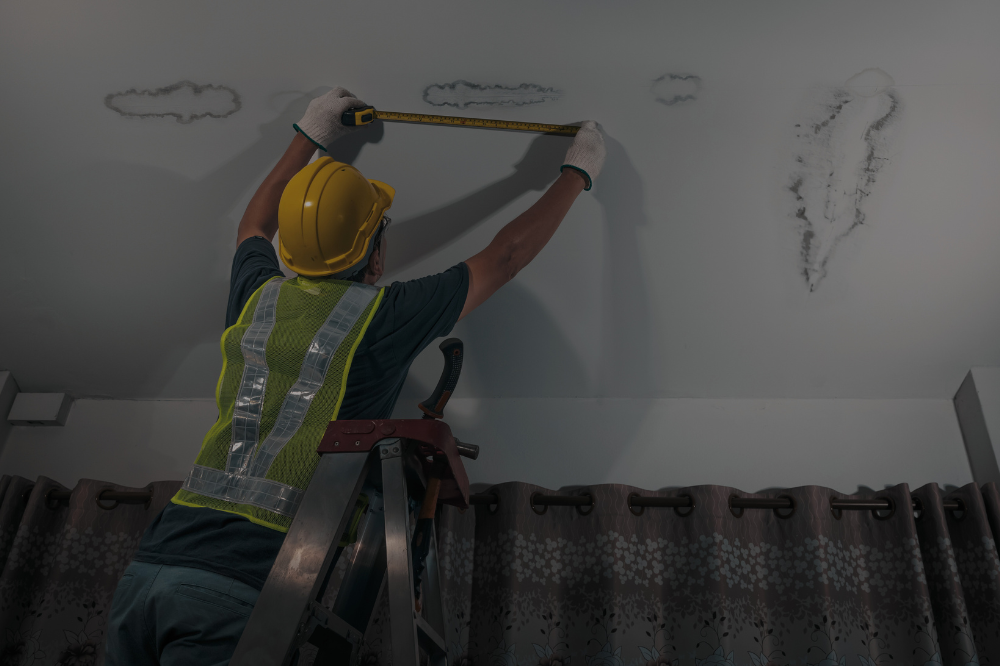Are you struggling with mold and want to know whether or not home insurance covers it? Find out now!
Mold is one of the most dreaded problems homeowners face. Not only can it cause extensive damage to your property, but it can also pose significant health risks to you and your family. If you discover mold in your home, one of the first questions you’ll likely ask is: “does homeowners insurance cover mold?“.
However, whether or not your policy covers it depends on the circumstances surrounding the mold growth, so find out what are them. Also, if you want to check out more financial tips on our website, you can click on this link!
When Does Homeowners Insurance Cover Mold?
Homeowners insurance typically covers mold damage only when it is the result of a covered peril. A “peril” in insurance terms is an event that causes damage or loss, such as a fire, burst pipe, or storm. If mold results from one of these covered perils, your insurance may help pay for the cost of mold removal and repairs.
Covered Perils:
- Water Damage from Sudden and Accidental Events: if a pipe bursts suddenly and causes water damage that leads to mold growth, your insurance would likely cover the mold remediation. Similarly, if an appliance breaks and leaks water, leading to mold, that too would typically be covered;
- Fire: if your home experiences fire damage, and the subsequent water used to extinguish the fire leads to mold, this would generally be covered.
When Mold Isn’t Covered By Homeowners Insurance
If the mold develops over time due to ongoing maintenance issues or neglect, your insurance company will likely deny the claim. There are several scenarios where you might be responsible for covering the costs out of pocket, such as:
- Neglect and Poor Maintenance: if the mold growth is due to poor home maintenance or long-term leaks that you failed to address, your insurance won’t cover the damage. This includes things like leaking faucets, unventilated bathrooms, or improperly sealed windows;
- Flooding: standard homeowners insurance policies typically don’t cover damage caused by flooding. If mold results from floodwater, you’ll need a separate flood insurance policy to cover the damage;
- High Humidity and Poor Ventilation: mold that develops in damp basements, attics, or bathrooms due to high humidity or poor ventilation is considered a maintenance issue. Since this type of mold growth is preventable with proper upkeep, it won’t be covered by insurance.
Optional Coverage
- Water Backup Coverage: also known as a backup of sewer and drains or sump pump overflow endorsement, this coverage kicks in if damage occurs due to drain backups, sewer line clogs, or sump pump failures. If mold develops after such an event and you have this endorsement, the cost of remediation is likely covered, although coverage limits may apply;
- Hidden Water Damage Coverage: this option is useful when leaks occur in areas that aren’t visible, such as behind walls, under floors, or within cabinets. These hidden leaks can lead to significant damage over time, including mold growth. With a hidden water damage endorsement, your insurance may cover mold removal and related repairs.
What to Do If You Discover Mold
If you discover mold in your home, it’s important to act quickly. Here’s what you should do:
- Assess the Damage: determine the extent of the mold. If it’s a small, manageable area, you may be able to clean it yourself using household cleaners. However, if it’s a large area, you’ll need to call in professionals;
- Contact Your Insurance Company: if the mold is the result of a covered peril, contact your insurance company to report the damage. They will guide you through the claims process and advise you on the next steps;
- Document Everything: take photos and keep records of any communication with your insurance company. This documentation will be crucial if there are any disputes over your claim;
- Hire a Professional: for extensive mold damage, hire a professional mold remediation company to safely and effectively remove the mold and prevent it from returning.

